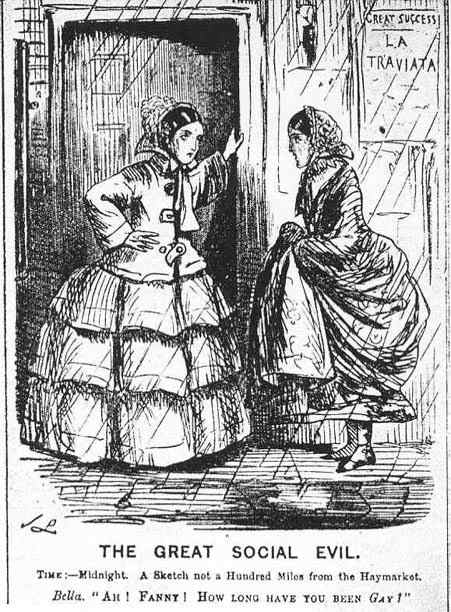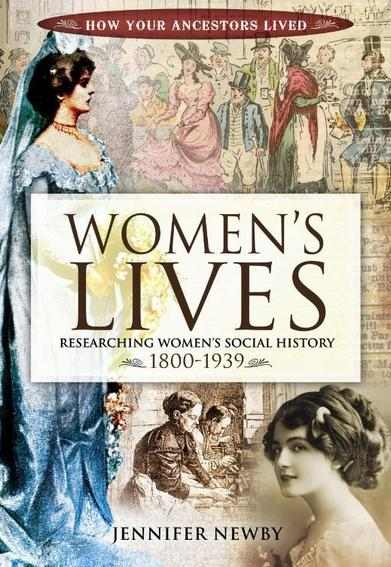Guest post from Jen Newby, author of Women's Lives
Posted on
Read this fascinating guest post from Jen Newby, the author of Women's Lives: Women's Social History 1800-1939.
Thieving whores!
Women on the streets of Victorian England often posed as prostitutes, only to pick the pockets of their pick-up, reveals Jen Newby.

In 1837, Ellen Reece, a 24-year-old prostitute, was in Salford gaol awaiting a fourteen-year sentence of transportation. During her stay, the prison chaplain interviewed Ellen and recorded some of her experiences. From the age of 14, she told him, she had “lived entirely by prostitution or plunder,” but “seven times as much by robbery.”
Nineteenth century prostitutes often doubled as small-time thieves, robbing their customers, especially drunken sailors or provincial visitors to the cities. They took money, gloves and watches from their client after he had undressed, while he slept, dipped into his pocket while soliciting, or lured him to a place where their pimp might appear to extort money from him.
Ellen explained to the chaplain exactly how she and her companions conducted their work: “None of the girls think so much of prostitution but as it furnishes opportunities of robbing men...most girls will rob by violence and especially drunken men...[They] will not go to a house if they can help it; to some back street. Gentlemen notice the features so much better when you go to a house.”
Whenever possible, Ellen took a client’s wallet and escaped before she had to have sex with him. Ellen and her companion, Jane Doyle, would pick the client’s pockets while his breeches were down and would run off while his state of undress hindered his pursuit. Sometimes they were arrested by the police, but Ellen and Jane had a variety of strategies to avoid being caught with the money:
'The places for hiding money are pockets in the underside of the Stays towards the lower part...wrapping it in a piece of rag or paper and putting it in the hair...Also, putting it where decency forbids to name – has known thirty Sovereigns hidden there at one time. Also swallowing it – has known eleven swallowed...If they don’t get at it for two or three days they [prostitutes] get opening medicine.'
Women like Ellen and Jane could be remarkably successful – until they were arrested. Relatively few of their victims wanted to publicise their visit to a prostitute, by complaining to the police. In 1886–7, the chief constable of Wolverhampton reported that thirty-eight such offences had been reported, but only eighteen were brought to justice. ‘Complainants generally drunk – and following day decline to prosecute,’ he noted. Interestingly grand juries also regularly threw out such cases if they did come to court, as there was a feeling that these men deserved to be robbed.
Read more about criminal women and other aspects of women's social history in Jen's book, Women's Lives: Women's Social History 1800-1939 (Pen and Sword, 2011): http://www.pen-and-sword.co.uk/Womens-Lives/p/3229 Jen also blogs at http://www.writingwomenshistory.co.uk/

Add a comment: